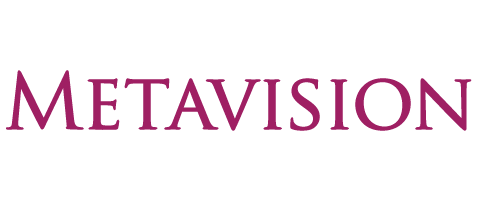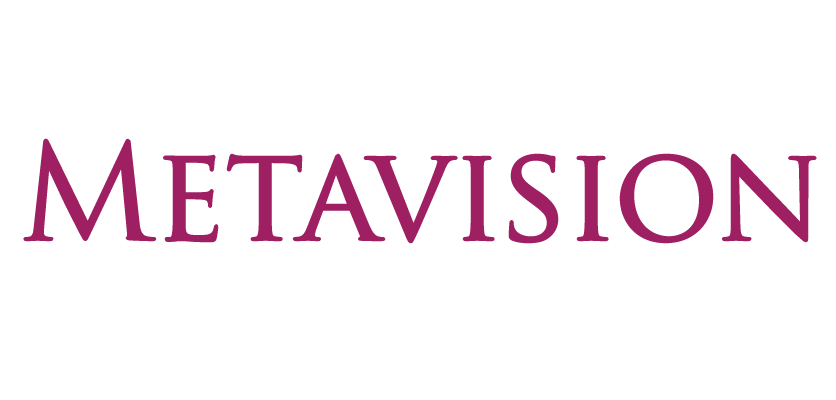Resources for Current Students
The information on this page includes important details about assessments, course material and your rights and responsibilities as students. Please make sure you are familiar with all the policies and procedures which relate to your educational journey here with us.
Assessment Information
Grading Rubric
| Grade | Mark | Description | Student Assessment Policy Criteria for Overall Unit Grades | Student Assessment Grading Criteria |
|---|---|---|---|---|
| HD | 85-100% |
High Distinction (Outstanding performance) |
Complete and comprehensive understanding of the unit content Development of relevant skills to an outstanding level Demonstration of an extremely high level of interpretive and analytical ability and intellectual initiative Excellent achievement of all learning outcomes for the unit |
At High Distinction level: The assignment fully addresses all marking criteria Original and/or creative thinking evident in the assignment Accurate understanding of a broad range of relevant academic sources demonstrated Synthesis and analysis of theories and concepts is present Structure of the assignment is very logical and clear Excellent academic writing skills demonstrated with no grammatical or spelling mistakes Academic referencing conventions (APA 7th ed.) accurately followed |
| D | 75-84% |
Distinction (Very high level of performance) |
Very high level of understanding of the unit content Development of relevant skills to a very high level Demonstration of a very high level of interpretive and analytical ability and intellectual initiative Comprehensive achievement of learning outcomes for the unit |
At Distinction level: Assignment addresses the majority of marking criteria Integration and comparison of theories and concepts evident in the assignment Very good understanding of a wide range of relevant academic sources demonstrated Structure of assignment is logical and clear Very good academic writing skills demonstrated with few grammatical or spelling mistakes Academic referencing conventions (APA 7th ed.) followed with a high degree of accuracy |
| C | 65-74% |
Credit (High level of performance) |
High level of understanding of the unit content Development of relevant skills to a high level Demonstration of a high level of interpretive and analytical ability Achievement of all learning outcomes for the unit |
At Credit level: Assignment addresses many of the marking criteria Substantial understanding of theories and concepts evident in the assignment Good understanding of a range of relevant academic sources demonstrated Structure of assignment is mostly logical and clear Good academic writing skills demonstrated with some grammatical errors and spelling mistakes Academic referencing conventions (APA 7th ed.) followed with a fair level of accuracy |
| P | 50-64% |
Pass (Competent level of performance) |
Adequate understanding of most of the basic unit content Development of relevant skills to a satisfactory level Adequate interpretive and analytical ability and Achievement of all learning outcomes for the unit |
At Pass level: Assignment satisfactorily addresses marking criteria Competent understanding of theories and concepts evident in the assignment Competent understanding of a range of relevant academic sources demonstrated Structure of assessment could be improved Academic writing skills developing, with editing needed to correct grammatical errors and spelling mistakes Academic referencing conventions (APA 7th ed.) followed to some extent |
| FS | 45-49% |
Academic Fail (Permitted to resubmit) |
Inadequate understanding of the basic unit content Failure to develop relevant skills Insufficient evidence of interpretive and analytical ability Failure to achieve some or all learning outcomes for the unit |
Academic Fail (Resubmit): Assignment addresses marking criteria at a level just below a Pass grade Developing understanding of theories and concepts evident in the assignment Some academic references have been used appropriately Structure of assignment somewhat organised Academic writing skills are approaching Pass standard An attempt has been made at following academic referencing conventions (APA 7th ed.) |
| FO | Below 45% |
Academic Fail (Attempted all assessments but did not achieve 45%) |
Inadequate understanding of the basic unit content Failure to develop relevant skills Insufficient evidence of interpretive and analytical ability Failure to achieve some or all learning outcomes for the unit |
Academic Fail: Assignment does not address marking criteria to Pass standard Understanding of concepts and theories not evident in the assignment or faulty Assignment is unreferenced or academic references are not accurately understood Structure of assignment is disorganised Academic writing skills are not at pass levelAcademic referencing conventions (APA 7th ed.) are not followed |
| FN | 0-49% |
Fail No Submission (Did not attempt all assessments and did not achieve 50%) |
Inadequate understanding of the basic unit content Failure to develop relevant skills Insufficient evidence of interpretive and analytical ability Failure to achieve some or all learning outcomes for the unit |
Fail No Submission: Did not attempt all assignments |
Academic integrity, plagiarism and referencing
Students are expected to understand and respect the principles of academic integrity as members of the Metavision Institute scholarly community. Students must attach an assessment cover sheet to all assignments, with a signed declaration that the assignment is their own work.
Plagiarism is a form of academic dishonesty that involves claiming ownership of the ideas, words, or work of someone else, or using them without appropriate reference. Instances of student plagiarism will be addressed within the framework of the Academic Integrity Policy.
It is a requirement that students use the American Psychological Association (APA, 7th ed.) referencing style throughout this course. If you need support with referencing, please visit the APA website here and make use of their free online tutorials. You can also access online library resources on referencing and academic integrity.
Assessment Policy and Information
In order to receive a pass grade for any unit, students must attempt all assessment tasks and achieve at least 50%. The final marks for the unit will be moderated according to the Student Assessment and Moderation Policy, and in some cases, there may be a variation in the final grade awarded to students.
Assessment within this unit is aligned with the Assessment and Moderation Policy. Assignments are aligned with the unit learning outcomes listed above and are designed to guide and improve the quality of student learning through the provision of feedback that is constructive, clear, informative and timely. This is accomplished by the use of formative and summative assessments. Formative assessment can be understood as “assessment that is specifically intended to generate feedback on performance to improve and accelerate learning” (Sadler, 1998 as cited in Nichol & McFarlane-Dick, 2006, p. 199). Summative assessments are intended to assess the overall quality of learning in the unit and provide students with the opportunity to perform at a higher level as a result of their learning during the unit.
Reference:
Nichol, D. J., & McFarlane-Dick, D. (2006). Formative assessment and self-regulated learning: A model and seven principles of good feedback practice. Studies in Higher Education, 31(2), 199-218.
Extensions and late submissions
An assessment item submitted after the assessment due date, without an approved extension for mitigating circumstances, will be penalised. The standard penalty is the reduction of the mark allocated to the assessment item by 5% of the total mark for each business day that the item is late.
Students can apply for extensions to due dates on the Assignment Extension Form.
Grading
Return of marked assignments
Marked assignments will be made available to students within 21 days in the online unit classroom.
Request for review of grades
Students may request a review of assignment grade on the Review of Grade Request Form (available on the Forms page on the website). The Academic Director Higher Education will arrange for a second marker to assess the assignment specified on the request form. The second marker’s grading result will be taken to be the final result for the assignment.
Academic grievances, complaints and appeals
Students are encouraged to raise any grievance directly with the staff member involved in the first instance. Students may submit a formal complaint and appeal about any aspect of their study in this unit on the Formal Complaint and Appeal Lodgement Form (available on the Forms page on the website). The Academic Director Higher Education will follow the process outlined in the policy.
Student support services
The following support services are available and accessible for all students as outlined in the Student Welfare and Disability Policy.
Academic study skills
Academic teaching staff and tutors provide students with the following support with their academic study:
- Academic skills programs,
- Individual tutoring,
- Appropriate study groups,
- Referral to external counselling,
- Mentoring, or
- A combination of the above.
English language assistance
Tutors provide students identified through formative assessment, or on request, with additional tutoring on the English language to assist them to succeed in their studies.
IT assistance
The office administration provides advice and support to students on how to access and navigate the learning management system.
Special consideration
Students experiencing circumstances that affect their ability to succeed in their studies, and are in need of support such as assignment extensions, are to complete the Special Consideration Application Form. The form is to be submitted as soon as possible after study performance has been affected. Students are also required to submit documentary evidence with the application, such as medical certificates or reports, a letter or report from a health practitioner, a support letter from an employer, a statement from a relevant authority, a jury duty summons, or a funeral notice. If the matter is serious and ongoing, students are to contact the Academic Director Higher Education who may recommend that the student defers their studies for a time.
Reasonable accommodation in assessment
Students with a disability who require reasonable accommodation in assessment tasks are to submit documentary evidence from their medical or health practitioner on their disability and likely impacts on study, and reasonable accommodation required, to the Academic Director. The Academic Director will decide on the reasonable accommodation to be provided.
Peer Learning
Peer learning is central to the Metavision Institute. Students are organised into groups at their first intensive, and we encourage peer groups to maintain contact on a weekly basis to discuss their assignments, readings, research and share learning experiences.
Peer learning offers students support and allows them to formulate their own questions, discuss issues, explain their viewpoints, and engage in cooperative learning.
Study Assistants
Study Assistants are available throughout intensives on a one-to-one basis and during classes. They are also available throughout the year to help with the home study program and any issues that may arise during the course. Students are encouraged to make use of this valuable resource.
In-Class Handouts
In class handouts are frequently used to contextualise discussion and course content. This is an important way to bring wider discussion to the core content and help students understand the complex relationships at play in what we teach
ProQuest Database
Metavision has a subscription for students to search the ProQuest database for academic publications.
The Library
The Metavision Institute Library has a good selection of books that are available for loan to students throughout the year. We do carry all of the books on the reading list but recommend students to purchase their own for use during the extended home study periods and for their ongoing reference.
Students are encouraged to contact the Library if you have any requests or needs during your study.
View Library
The Metavision Library is available to current students only.



